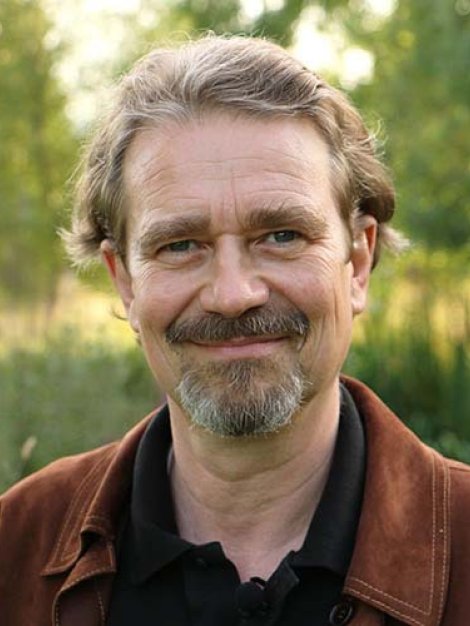In addition to the conference, ISPO is collaborating with NOW Partners on new Innovation Labs on key industry challenges, for example Supply and Value Chains, Climate and Human Rights, Finance and Lobbying for Good. These Innovation Lab workshops will be offered to companies throughout the year.
During the June 13-14 conference, successful business leaders from the outdoor industry will enter into solution-oriented dialogues with leaders from other industries. Using trend data and concrete examples, they show how the integration of economic success and positive impact works. “Regenerative Value Creation is not just a nice, new idea, but an already widespread and concrete reality from which we can all learn. Without healthy ecosystems and societies, we cannot have healthy companies and economies. Therefore, we see more and more successful business approaches that create economic value by regenerating people, societies, and nature. Even amidst the current crises, it is the business model of the future,” says Walter Link, Co-Founder and CEO of NOW Partners.
ISPO.com: ISPO will cooperate with NOW Partners to advance regenerative innovation. What does this cooperation mean for outdoor industry members?
Walter Link: This new strategic partnership reinforces the ISPO Group’s role as a key innovation partner for the outdoor and sports industry, as well as other sectors. The goal is to help companies to be economically successful while increasing their positive impact on people, societies, and nature. Evolving market conditions increasingly reward sustainable behaviour. This is clearly demonstrated by data from all stakeholder groups: consumer and business clients, talent and investors. Also, governments and institutions like the Sao Paulo stock exchange are increasingly demanding transparency and regenerative performance.
This requires innovation on all levels. As so often, we need to evolve what we do and how we do it to benefit from these positive trends. Thus, diverse industry leaders and experts will address key issues including: the transformation of supply and value chains; how to strengthen brand, marketing and all types of retail; how to benefit from new technologies and materials; how climate and social behaviour impacts bank financing and ESG investment success; and how joint ‘Lobbying for Good’ can create better market conditions for regeneration-oriented companies.

What role do the ISPO trade fairs play in this?
The trade fairs are already an important meeting place where key trends and developments can be seen and where manufacturers can present their latest products and services. Along with our help, ISPO wants to become an essential innovation partner for an industry that is facing many new challenges.
NOW Partners specializes in supporting companies and economies to achieve success precisely because they advance the regeneration of people and societies, nature and the climate. We call this integration of economic success and positive impact for all stakeholders ‘Regenerative Value Creation’. It requires ongoing innovation that needs to be adapted to the specific situations of companies. The ISPO conferences will support these companies with information and inspiration to start the process. Our ISPO-NOW Innovation Labs will help them to translate their Regenerative Value Creation visions into successful implementation.
Why is the new conference format integrating so many leaders from other industries?
All over the world and in many industries, we can find interesting examples of regenerative innovation and business success. We can learn from each other across industries and cultures. And we can consider together how to collaborate for better overall results that strengthen economies, societies, and nature.
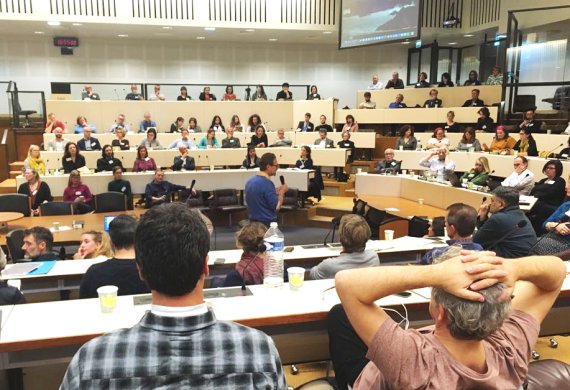
Why do you call this approach ‘regenerative‘? Is sustainability not enough?
Sustainability is a very important term. So are circularity, inclusion, and many others. They share many principles and practices. Regeneration benefits from all of them. It points to the fact that most living systems, on which not only our personal but also our economic health depends, are increasingly degenerating. We need to help them regenerate – meaning, to become healthy again.
Only when a system is healthy does it naturally support our evolutionary potential. If a child is not loved, intellectually stimulated and well nourished, it cannot develop to its full potential. The same is true for social and ecological systems, and for businesses and economies. Regeneration brings systems back to health.
To systematize it in business and economy, we need Regenerative Value Creation that systematically integrates positive impact with business success, without which companies are not sustainable and not inspiring for the mainstream of the economy that has to implement Regenerative Value Creation if we want our children and other species to have a promising future. The outdoor industry is a perfect sector to help lead this growing movement.
Does Regenerative Value Creation only work in the global North, where consumers have more money?
Of course, income plays an important role. But sustainability or regeneration expectations are increasingly a global phenomenon. Take the Brazilian company, Natura, whose CEO is speaking at the conference. This former mission-driven start-up with a strong focus on regeneration has become the fourth-largest beauty group in the world today because it has consistently moved towards Regenerative Value Creation. With this strong DNA, it became financially so successful that it was able to buy The Body Shop and Avon. Together they strive to implement Regenerative Value Creation in over 100 countries.
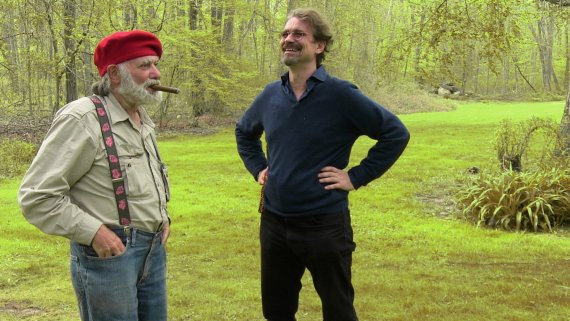
What drives Natura’s success?
Natura succeeds by innovating systematically across all corporate activities. Unlike traditional problem-solving where we might resolve one problem while creating two new ones, regeneration creates mutually enhancing synergies. Natura supports regeneration throughout their supply chain. They buy from the most regenerative sources that range from indigenous people in the Amazon region to large scale regenerative farmers. When they didn’t find enough regeneratively grown palm oil, they started to grow and make their own. They are also moving towards true carbon neutrality by actually reducing the use of polluting energy sources rather than continuing with business as usual and only buying carbon credits.
In a low income industry, they committed to paying living wages and supporting living incomes across their over 7 million mostly female distributors who are becoming models of women entrepreneurs in their communities. As a listed company, Natura also calculates the ROI (Return on Investment) of all of these positive impact activities. And it became the first publicly traded B Corp, among many other things. I could go on and on about this great, but of course not perfect, company, which is why we have Natura's CEO speaking at the OutDoor Conference.
Does the financial sector support Regenerative Value Creation?
Yes. More and more. When we started to develop new ways of business 30 years ago, it was much rarer to find investors and banks who cared. Now banks see the lack of sustainability as a risk factor, and more and more investors apply ESG criteria.
Even in Mergers & Acquisitions, ESG is increasingly an important factor, especially if it measurably provides Regenerative Value Creation. The whole financial sector is a force in moving companies and economies towards regeneration. Incidentally, besides transparency and good regulation, corporate success based on true Regenerative Value Creation is also the best remedy against greenwashing, which is currently on the rise because so many major trends are pointing in the direction of regeneration.

Not only clients and investors want sustainability. Also, talent is increasingly drawn to more sustainable companies? I recently read that meaning is the new money.
That's true. Trend researchers confirm that especially the younger generations have a very strong preference for more regenerative companies. They are not only looking for income. They want to make a meaningful contribution. They realize that besides voting, activism and purchasing power, what you do for work can make a real difference.
That's why, for example, two million people apply every year to Unilever, which is seen by many people as a company that is on the right track. That gives Unilever and other companies that are viewed positively a big competitive advantage. Also, SAP has calculated that a one percent increase in employee satisfaction generates 90 million euros in additional profit. People who are passionate about their work are more productive.
Let's get back to ISPO's partnership with NOW Partners. This does not only refer to trade fairs and conferences, but goes beyond that?
Absolutely. Just like the trade fair, the conference is a moment of information and inspiration. But inspiration alone does not always lead to change, because you also have to implement it concretely. That's why NOW Partners will help the ISPO Group to support companies throughout the year to find concrete solutions to implement Regenerative Value Creation in their daily work. There will be programmes on all the major corporate challenges and opportunities, some of which we have already mentioned above, and some of which we will also address during the conference. We will connect decision-makers from the outdoor and sports industry with outstanding international experts of all kinds to develop relevant solutions together.
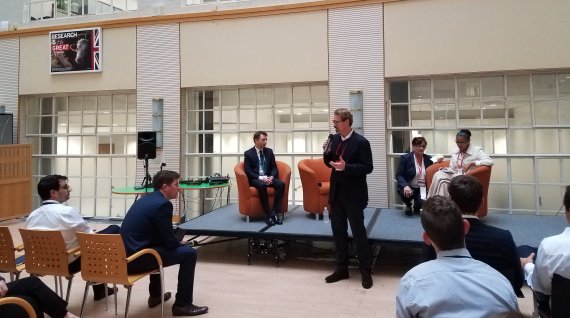
Now a manager could say, I'd rather get my own consultant. What advantage does the Innovation Lab by ISPO and NOW have?
We are not in competition with their advisors. But often business people learn most with and from each other. Companies participate together, and then each company decides for itself what to do. Studies clearly show that diversity strengthens innovation. Our co-creation processes, which have been successful worldwide, optimize the positive impacts of diversity. They stimulate new insights and their concrete implementation. Diverse companies with diverse experiences contribute their diverse knowledge.
In addition, we provide outstanding experts. Individual companies, especially smaller ones, would have difficulty gaining access to these experts on their own, and certainly not at such a low cost. There are also many issues that are better solved together. As in sport, business is both competition and cooperation. One does not exclude the other.
Which issue do you have in mind, for example?
Supply chains are one of the big problems that companies wrestle with. And it also contains great opportunities, which are sometimes better achieved together. At the moment, a lot of manufacturers are having their products made in China. As the last few years have shown, this can be very problematic. Delivery times became longer and longer, and delivery reliability is decreased. Especially smaller outdoor companies are often relatively small customers for large Chinese manufacturers, and are treated accordingly.
Together, many smaller European outdoor companies would have greater market power. They could also jointly move their production to Europe. They can also jointly invent materials, try them out and have them recycled. And together they can ensure that the EU creates a more sustainable playing field that reflects their values and those of their customers.
To complete the interview, I would like you to complete the following sentence: The world would be a better place if…
The world would be a much better place if we had an economy based on Regenerative Value Creation, because it fully integrates economic success with the regeneration of people, societies, and nature. This is absolutely necessary and therefore inevitable.
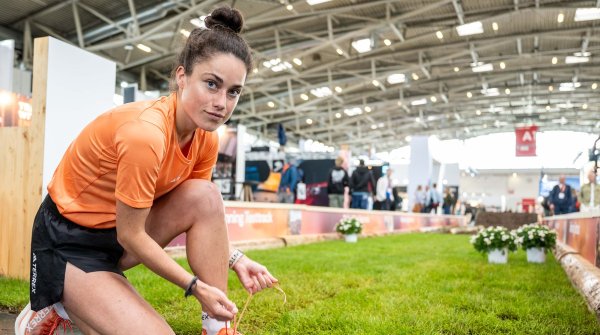 OutDoor by ISPOShaping the (outdoor) future together
OutDoor by ISPOShaping the (outdoor) future together OutDoor by ISPOHighlights of OutDoor 2024 in pictures
OutDoor by ISPOHighlights of OutDoor 2024 in pictures
- ISPO awards
- Mountain sports
- Bike
- Design
- Retail
- Fitness
- Health
- ISPO Job Market
- ISPO Munich
- ISPO Shanghai
- Running
- Brands
- Sustainability
- Olympia
- OutDoor
- Promotion
- Sports Business
- ISPO Textrends
- Triathlon
- Water sports
- Winter sports
- eSports
- SportsTech
- OutDoor by ISPO
- Heroes
- Transformation
- Sport Fashion
- Urban Culture
- Challenges of a CEO
- Trade fairs
- Sports
- Find the Balance
- Product reviews
- Newsletter Exclusive Area
- Magazine
